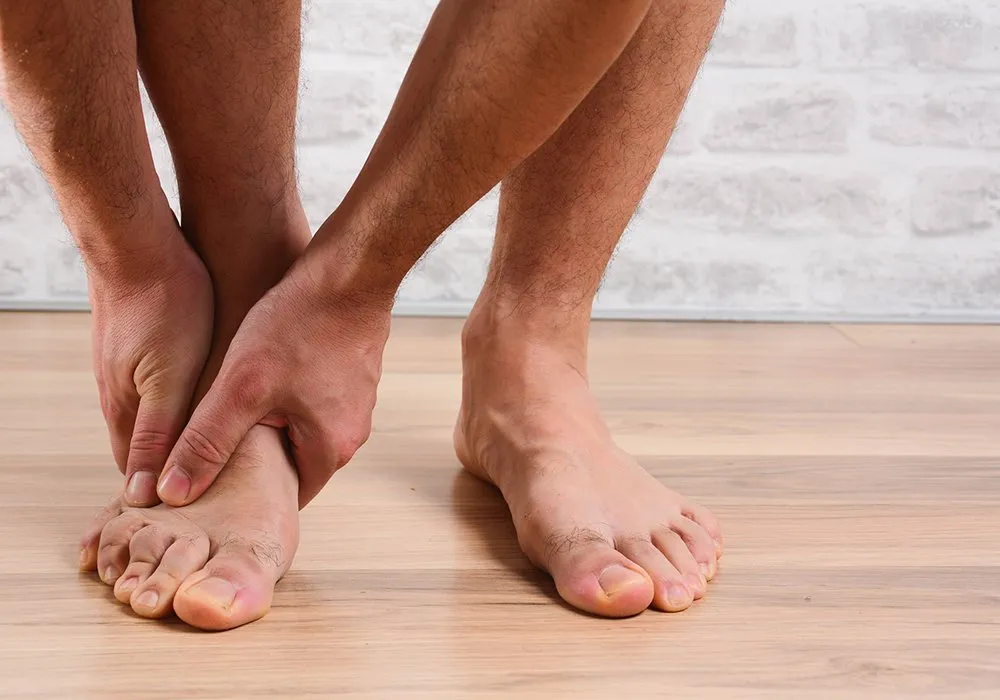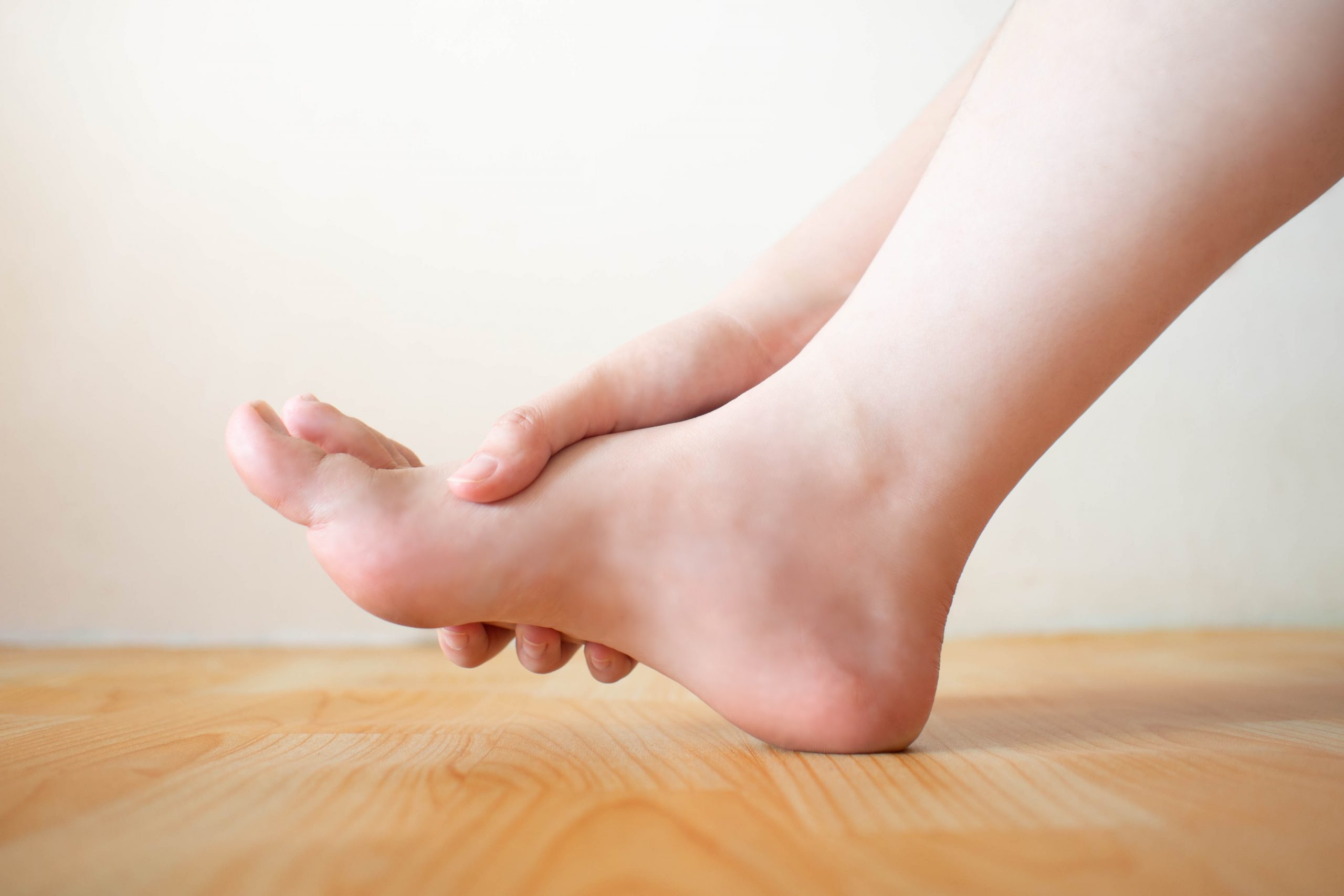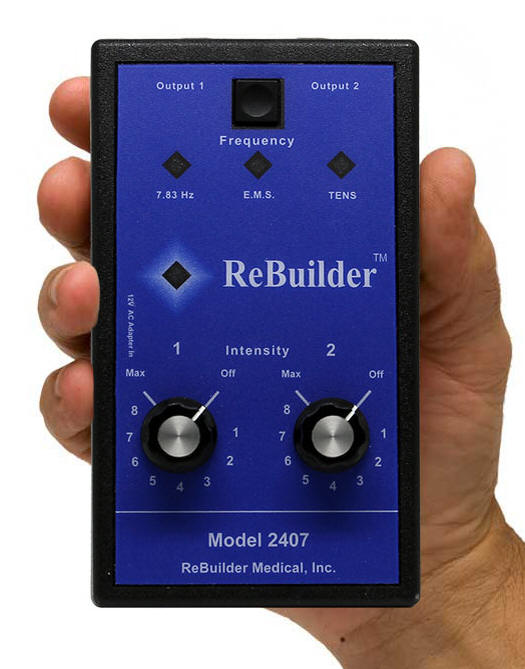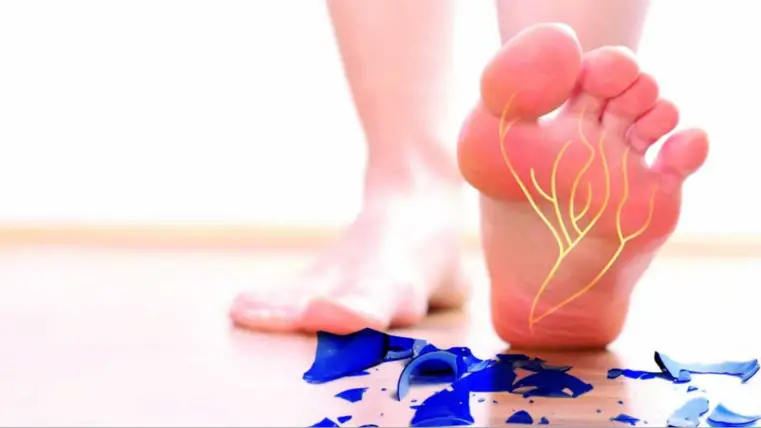Are you experiencing tingling, numbness, or pain in your hands and feet? If so, you may be dealing with peripheral neuropathy. This condition affects the nerves outside the brain and spinal cord and can significantly impact your daily life. But what exactly causes peripheral neuropathy? Whether it’s related to diabetes, alcohol use, nutrient deficiencies, injury, toxic overload, infections, or other factors… understanding the causes can help you take steps toward finding relief.

Type 2 diabetes is a well-known cause of peripheral neuropathy. When blood sugar levels are consistently high, it can damage the nerves in your extremities over time. The excess glucose in your bloodstream affects the small blood vessels that supply nutrients and oxygen to your nerves, leading to nerve damage. The longer you have uncontrolled diabetes, the higher your risk of developing peripheral neuropathy. This condition often starts with minor symptoms such as numbness or tingling in the hands and feet but can progress to more severe pain or even loss of sensation.
Managing type 2 diabetes is crucial for preventing or slowing down the progression of peripheral neuropathy. Keeping your blood sugar levels within a healthy range through diet, exercise, medication, and regular check-ups with your healthcare provider can help protect your nerves from further damage. If you have type 2 diabetes and are experiencing any signs or symptoms of peripheral neuropathy, you must consult your doctor promptly. They can guide managing both conditions effectively and improving your overall quality of life.
Alcohol use disorder, commonly known as alcoholism, is a significant cause of peripheral neuropathy. Excessive and long-term alcohol consumption can damage the nerves in your body, leading to symptoms such as tingling or numbness in your hands and feet. When you consume alcohol excessively, it interferes with the normal functioning of your nervous system. The ethanol in alcoholic beverages affects the absorption of essential nutrients like thiamine (B1) and vitamins B6 and B12. These nutrients are crucial for maintaining healthy nerve function.
Furthermore, alcohol abuse also leads to inflammation within the body. Chronic inflammation damages nerve tissues over time, resulting in peripheral neuropathy. Additionally, excessive drinking can lead to liver disease or nutritional deficiencies contributing to nerve damage. It is important to note that not everyone who drinks heavily will develop peripheral neuropathy. Genetic susceptibility may play a role in determining an individual’s vulnerability.
If you suspect that your peripheral neuropathy is caused by alcohol use disorder, seeking medical help is essential. Treatment often involves addressing the underlying addiction through counseling and therapy while also focusing on managing any existing symptoms related to peripheral neuropathy. Remember, reducing or stopping alcohol consumption can greatly improve nerve health and reduce further damage caused by alcohol-related peripheral neuropathy.
Chemotherapy, a potent weapon in the fight against cancer, can inadvertently lead to an unexpected adversary: peripheral neuropathy. While effectively attacking malignant cells with its powerful drugs, this formidable treatment modality may also inflict collateral damage on the delicate nerves that weave through our bodies like intricate pathways. Chemotherapy-induced peripheral neuropathy (CIPN) occurs due to the toxic effects of these medications on nerve fibers responsible for transmitting signals from different parts of our body to the brain. As chemotherapy courses through veins and penetrates tissues, it can disrupt these vital communication channels, causing tingling sensations or numbness in extremities such as hands and feet – often likened to pins and needles dancing relentlessly beneath your skin.
The severity of CIPN may range from mild discomfort to debilitating pain that hinders daily functionality, making even the simplest tasks arduous trials of endurance. While this adverse side effect remains a regrettable consequence of chemotherapy’s potency, researchers are fervently working towards finding preventive measures and alternative treatments that would allow patients to navigate their battle with cancer unscathed by this unwelcome companion named peripheral neuropathy.
Vitamin and nutrient deficiencies can also be a cause of peripheral neuropathy. Our bodies require a balanced intake of vitamins and minerals to function properly, and when we lack these essential nutrients, it can harm our nerves. One common deficiency that can lead to peripheral neuropathy is a lack of vitamin B12. This vitamin helps maintain the health of nerve cells and plays a crucial role in the production of myelin, which protects our nerves. Without enough vitamin B12, nerve damage can occur. Another important nutrient for nerve health is vitamin E. It is an antioxidant, protecting our nerves from oxidative stress and damage. Vitamin E deficiency has been linked to nerve problems such as peripheral neuropathy.

Additionally, certain mineral deficiencies like zinc or magnesium can also contribute to the development of peripheral neuropathy. These minerals play important roles in nerve function and signaling within the body. It’s essential to ensure you get adequate vitamins and minerals through your diet or supplements. Eating a varied diet rich in fruits, vegetables, whole grains, lean proteins, and healthy fats can help prevent nutrient deficiencies that may lead to peripheral neuropathy. If you suspect you may have a deficiency or are experiencing symptoms of peripheral neuropathy related to nutrient imbalances, and it’s always best to consult with your healthcare provider, who can perform tests and provide appropriate recommendations based on your needs.
Body toxicity is one of the underlying causes of peripheral neuropathy that you should be aware of. Our bodies are constantly bombarded with toxins, whether through environmental pollutants, processed foods laden with chemicals, or even the medications we take to heal ourselves. The accumulation of these harmful substances gradually takes a toll on our nervous system, resulting in peripheral neuropathy. Our bodies can detoxify themselves; however, when faced with an overwhelming amount of toxicity, this natural defense mechanism becomes overwhelmed and compromised.
Body toxicity not only affects our nerves but also hampers circulation and damages blood vessels supplying vital nutrients to these delicate nerve fibers. The best method to remove this toxicity is to use our ozone generator water treatment, an effective body detoxifier, and help patients recover faster by wiping out toxins, cleaning out the arteries and capillaries, and supplying oxygen
Consequently, tingling sensations, numbness, and burning pain emerge as distressing symptoms of peripheral neuropathy due to body toxicity. We must recognize and combat body toxicity by adopting healthier lifestyle choices and nurturing our bodies back toward balance and harmony.
Autoimmune and inflammatory conditions are another common cause of peripheral neuropathy. In these conditions, the body’s immune system mistakenly attacks its nerves, leading to inflammation and damage. One example of an autoimmune condition that can cause peripheral neuropathy is rheumatoid arthritis. Rheumatoid arthritis is a chronic inflammatory disorder that primarily affects the joints. However, it can also lead to nerve damage in some cases. The inflammation associated with this condition can compress or irritate the surrounding nerves, causing pain, tingling, and numbness in the affected areas.
Another autoimmune condition linked to peripheral neuropathy is lupus. Lupus is a systemic autoimmune disease that can affect various organs and tissues in the body, including the nervous system. Nerve involvement in lupus can result in neuropathic pain and sensory disturbances. Inflammatory conditions like vasculitis (inflammation of blood vessels) or sarcoidosis (an inflammatory disease affecting multiple organs) have also been associated with peripheral neuropathy.
Treating autoimmune and inflammatory conditions may involve managing symptoms through medications that suppress immune responses or reduce inflammation. Physical therapy and other supportive therapies may also be recommended to help manage pain and improve the quality of life for individuals with these conditions.
Genetic conditions can also play a role in the development of peripheral neuropathy. Certain inherited disorders can cause nerve abnormalities, leading to nerve damage and dysfunction. One example of a genetic condition that may contribute to peripheral neuropathy is Charcot-Marie-Tooth disease (CMT). This hereditary disorder affects the peripheral nerves and can result in muscle weakness, numbness, and pain. CMT is caused by mutations in specific genes that are involved in nerve function.
Another genetic condition linked to peripheral neuropathy is hereditary sensory autonomic neuropathy (HSAN). HSAN is a group of rare disorders characterized by progressive degeneration of sensory and autonomic nerves. The specific genes involved vary depending on the type of HSAN. It’s important to note that while genetic conditions can predispose individuals to develop peripheral neuropathy, they do not guarantee its occurrence. Other factors, such as lifestyle choices and environmental triggers, may also contribute to the development or progression of this condition.

Trauma and surgery can be unexpected events that can potentially cause peripheral neuropathy. When a person experiences trauma, such as a car accident or a fall, nerves can become damaged. In some cases, this damage may lead to neuropathy symptoms. Similarly, certain surgeries can also result in nerve damage, especially if they involve cutting or manipulating nerves. Surgeries that commonly carry this risk include joint replacement procedures and spinal surgeries.
The impact of trauma or surgical procedures on the nervous system varies from person to person. Some individuals may experience immediate symptoms after the event, while others may not notice any changes until weeks or months later. It’s important for individuals who have undergone trauma or surgery to monitor their symptoms carefully and report any unusual sensations or changes in sensation to their healthcare provider. Prompt medical attention is crucial to diagnose and potentially treat neuropathy resulting from these events.
Infections are another potential cause of peripheral neuropathy. When the body is fighting off an infection, the immune system can mistakenly attack nerve cells, leading to damage and symptoms of neuropathy. Certain viral infections, such as herpes zoster (shingles), HIV/AIDS, and Lyme disease, have been associated with peripheral neuropathy. Bacterial infections like leprosy and diphtheria can also lead to nerve damage.
Infections that affect the gastrointestinal tract, such as a gastrointestinal virus or bacterial food poisoning, can sometimes trigger autoimmune reactions that target nerves in various body parts, including the peripheral nervous system. It’s important to note that not all infections will necessarily lead to neuropathy. However, suppose you have recently had an infection and are experiencing symptoms such as numbness, tingling, or weakness in your limbs or other affected areas. Consulting with a healthcare professional for proper evaluation and diagnosis is essential in that case.
Treatment for infection-related neuropathy may involve addressing the underlying infection through medications or antibiotics. In some cases where nerve damage is severe or irreversible due to infection-related causes, managing symptoms and preventing further progression may be the primary goal of treatment.
Are you tired of living with the constant discomfort caused by peripheral neuropathy? Look no further because The ReBuilder is here to provide you with a much-needed solution. The innovative The ReBuilder device focuses on treating your condition in the most effective and non-invasive way possible. With its cutting-edge technology, this groundbreaking device offers exceptional results and brings hope to those struggling with peripheral neuropathy for far too long. The ReBuilder stands out from other treatment options due to its unique approach. Corrective electrical signals at a specific frequency stimulate nerves in your feet or hands and encourage them to communicate properly again. This process helps reduce pain while restoring lost sensation over time. Imagine regaining control over your body’s responses, reestablishing a sense of normalcy that has eluded you for so long. One of the remarkable aspects of using The ReBuilder device is how easy it is to incorporate into your daily routine. Its compact size ensures maximum portability, which means you can use it anywhere –at home or on the go – making consistent therapy achievable without disrupting your regular activities. Combining efficacy with convenience allows you to take back control of your life and health effortlessly. Moreover, safety remains paramount when selecting any medical treatment option; fortunately, the creators of The ReBuilder fully understand this concern. Backed by extensive research and clinical trials conducted over the years, this device has proven itself reliable while maintaining an impeccable safety record.
While there are several causes to consider, it is essential not to overlook the significant role that pharmaceuticals can play in this disorder, specifically statins—commonly prescribed blood thinners. Pharmaceuticals, at times, bring respite and healing. However, studies have emerged linking prolonged statin use to the development of peripheral neuropathy, instilling concern within the medical community. These medications excel in reducing cholesterol levels; nonetheless, they accompany potential side effects that may lead to nerve damage over time. Although further research is required for a comprehensive understanding of these implications and better guidance for physicians prescribing such pharmaceuticals, it underscores the importance of closely monitoring patients who rely on statins to mitigate any possible risks associated with peripheral neuropathy and enhance their overall well-being.
The device has been designed to target and alleviate effectively target and alleviate peripheral neuropathy symptoms. With its cutting-edge technology, The ReBuilder focuses on stimulating your nerves and promoting healthy nerve function. This incredible device’s unique electrical signals work wonders in relieving numbness, tingling sensations, burning pain, or muscle weakness commonly associated with neuropathy. Its user-friendly interface allows for personalized treatment options tailored specifically to your needs. Simply adjust the intensity levels according to your comfort level, sit back, and relax while The ReBuilder works magic. Experience a renewed sense of well-being as this remarkable device aids in improving circulation and accelerating nerve regeneration, resulting in reduced pain and improved quality of life. Choose The ReBuilder today – a trusted companion on your journey towards freeing yourself from relentless peripheral neuropathy symptoms. Simple operating instructions are included with the ReBuilder 300 and 2407 models. There are also instructions, limitless phone assistance, a lifetime warranty, and a money-back guarantee. Because the vast majority of insurance policies cover it, all of your needs are satisfied.
The ReBuilder is not your average treatment; it utilizes cutting-edge microprocessor-based technology to target the root cause of neuropathy, aiming to restore function and improve quality of life. This innovative device works by delivering safe and gentle electrical signals directly to the affected nerves, stimulating them and promoting regeneration. The effectiveness of The ReBuilder lies in its ability to re-educate damaged nerves by mimicking their natural electrical impulses, facilitating healing from within. With customizable settings tailored to your needs, this user-friendly device allows for personalization based on symptom severity and individual comfort level. Picture yourself indulging in activities once limited due to unbearable pain – with The ReBuilder, those restrictions may soon become a distant memory as you regain control over your life. Eliminate tingling sensations, numbness, and burning discomfort with a tried-and-true solution used and trusted by nearly 200,000 individuals worldwide facing peripheral neuropathy – choose The ReBuilder.
Peripheral neuropathy, a condition characterized by damage to the peripheral nerves, can significantly impact one’s quality of life, leading to symptoms like pain, weakness, and numbness, primarily in the hands and feet. Understanding the cause of peripheral neuropathy is crucial in effectively addressing and managing this condition. We are at the forefront of offering innovative solutions to combat the challenges posed by peripheral neuropathy, with The ReBuilder playing a pivotal role in our approach.
The ReBuilder’s technology is designed to tackle the cause of peripheral neuropathy directly by stimulating nerve repair and improving nerve function. This device sends a therapeutic electrical signal that mimics natural nerve impulses, promoting healing and restoring nerve function over time. Here’s how The ReBuilder offers a solution to the underlying causes of peripheral neuropathy:
We are committed to providing relief and solutions to those suffering from the debilitating effects of peripheral neuropathy. By focusing on the cause of peripheral neuropathy and employing advanced technologies like The ReBuilder, we pave the way for more effective treatments, offering hope and improved quality of life for our patients. Our approach underscores the importance of innovative, targeted therapies in overcoming the challenges posed by peripheral neuropathy.
The ReBuilder’s patented electrical signal has been proven 94% effective in clinical studies in reducing or eliminating symptoms of neuropathy.


Contact Us
Newsletter
Quick Links
Contact Info
Frequency Rising
13239 Sundance Ave. San Diego, CA 92129
800-701-4039 9am – 5pm PST
info@peripheralneuropathytreatments.com